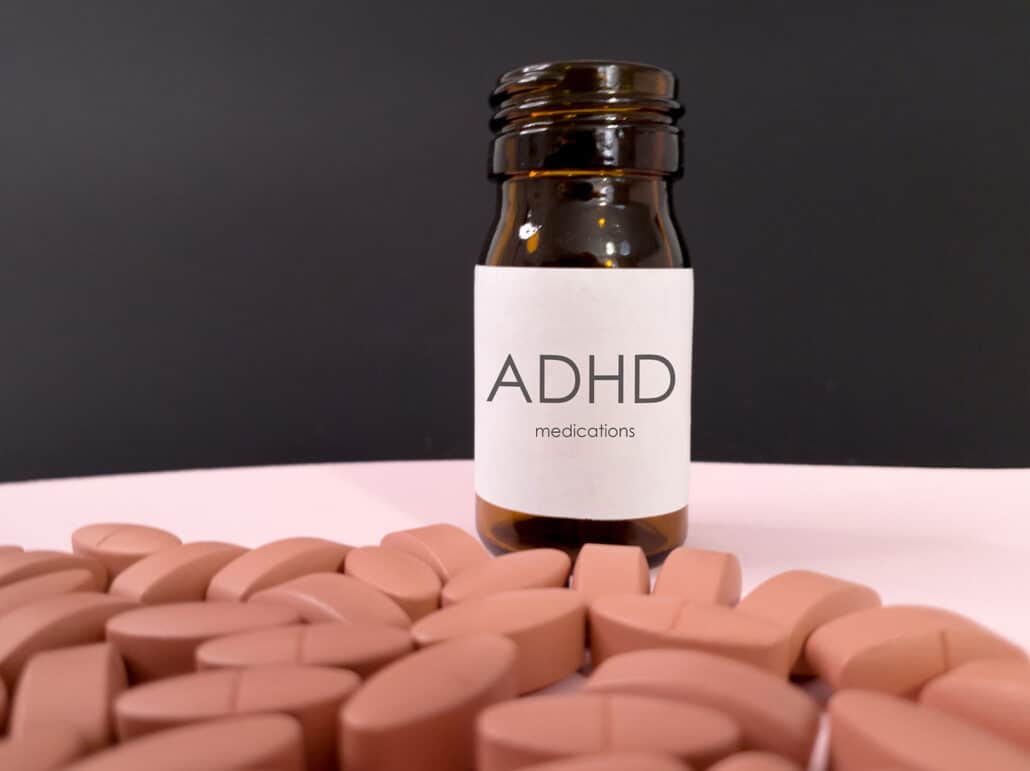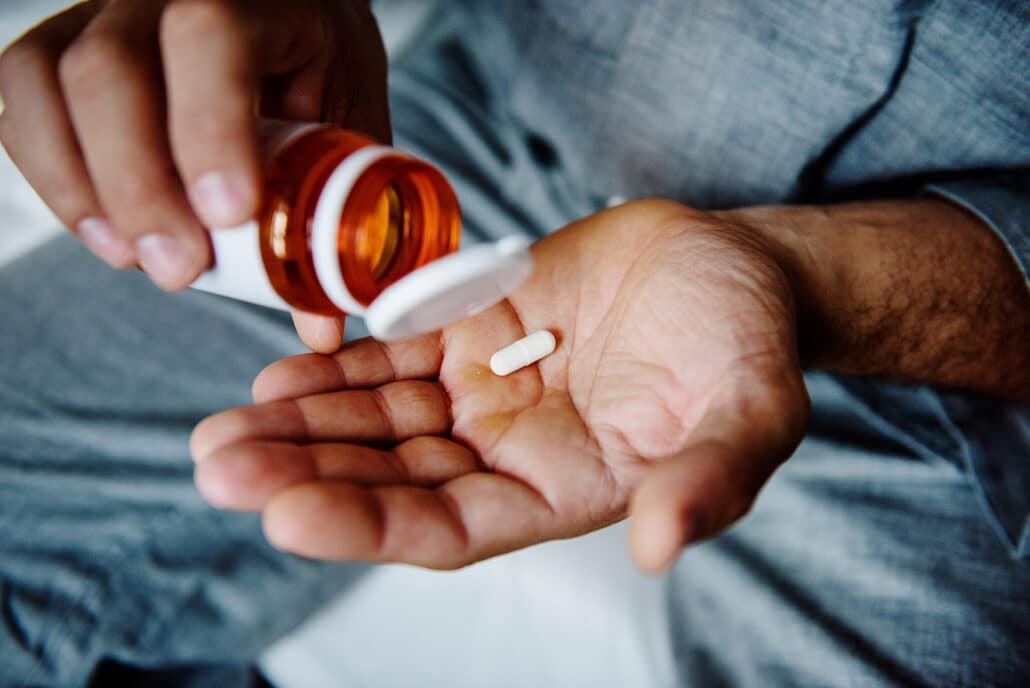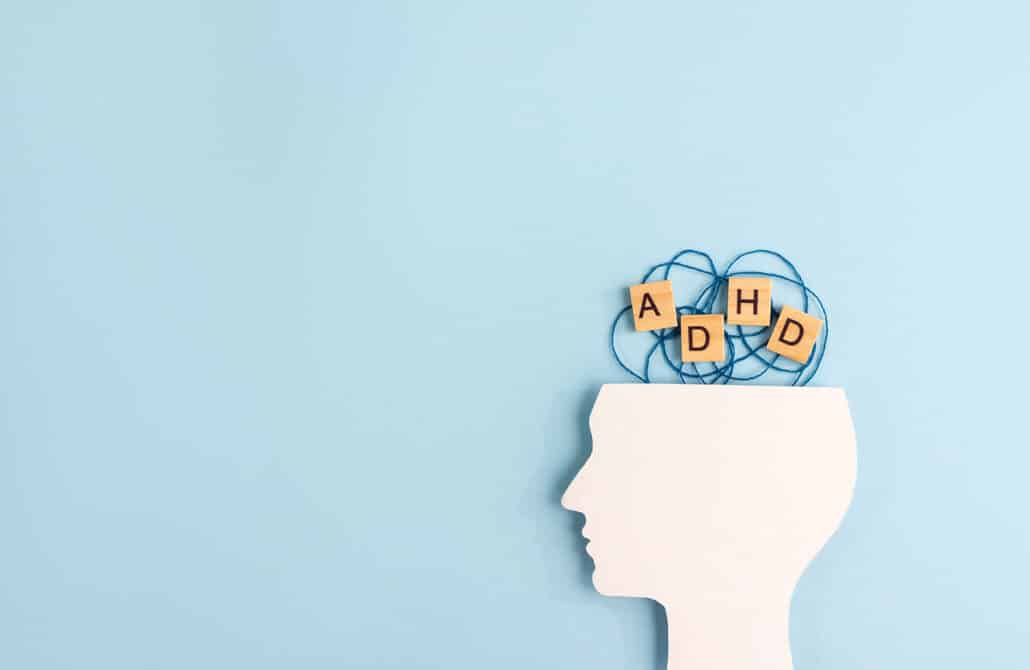Focalin is one of the many brands of dexmethylphenidate, a central nervous system psychostimulant used for the treatment of Attention Deficit Hyperactivity Disorder (ADHD) in children and adolescents.
It’s much like Adderall, though considered twice as strong on an mg-for-mg basis as it contains pure dexmethylphenidate salts rather than a mixture of amphetamine salts (MAS).
In this article, we’ll discuss everything you need to know about Focalin, including Focalin side effects, uses, interactions, and more.
Table of Contents
- 1 How Does Focalin Work?
- 2 What are the Side Effects of Taking Focalin?
- 3 Is Focalin Addictive?
- 4 Symptoms of Focalin Overdose
- 5 Other Risk Factors and Warnings
- 6 Interactions With Other Medications
- 7 Precautions Associated with Focalin
- 8 Symptoms of Focalin Dependence/Addiction
- 9 Can Pregnant Women Take Focalin?
- 10 Focalin vs. Adderall: Which Is Better for ADHD?
- 11 Final Thoughts
How Does Focalin Work?
As with most CNS stimulants, Focalin works by increasing the concentration of neurotransmitters dopamine and norepinephrine in the brain.

This helps increase a person’s ability to stay focused and improve listening skills. It may also help control behavioral problems, such as:
- Constant fidgeting
- Excessive physical movement
- Excessive talking
- Impulsive actions
- Outbursts
- Defiance
- Meltdowns
- Intense emotions
Due to its potency, Focalin is usually recommended to individuals that have built a tolerance for ADHD medications.
Focalin is available in both immediate-release tablets and extended-release capsules.
Immediate-release tablets are taken by mouth twice a day with or without food.
Extended-release capsules are also taken by mouth, though they can be opened and mixed in applesauce for children that struggle with oral medication.

What are the Side Effects of Taking Focalin?
People who take Focalin as prescribed by their physician rarely experience side effects. In the instance that side effects do occur, the patient may experience these symptoms:
Physical Side Effects
- Nausea
- Vomiting
- Stomach ache
- Hand tremors
- Decreased appetite
- Blurred vision
- Trouble sleeping
- Weight loss
- Dry mouth
- Dizziness
- Sore throat
- Heartburn
Physiological Side Effects
- Increased aggression
- Agitation
- Suicidal thoughts
- Anxiety
- Depression
- Loss of interest or pleasure
Serious Symptoms (Get Medical Help Immediately)
Some of the mentioned side effects (nausea, decreased appetite, dry mouth) disappear during treatment as the body adjusts to the medication. If the symptoms don’t go away after more than a week, contact your health care professional.
On the other hand, get medical help immediately if you experience these symptoms:
- Heart problems: palpitations, chest pain, trouble breathing
- Circulation problems: chills, numbness, muscle pain, unexplained wounds and/or bruises, color changes in the face, fingers, or toes
- Psychosis: aggression, paranoia, hostility, behavioral problems that weren’t there before
- Priapism: prolonged and persistent erection of the penis for more than four hours
Allergic reactions to Focalin (particularly its active ingredient methylphenidate) are rare but not uncommon.
Symptoms of a serious allergic reaction include trouble breathing, rash, dizziness, itching/swelling of the tongue, face, and throat, and fever. Seek medical attention right away if you experience any of these symptoms.
The same is said if you experience symptoms of serotonin syndrome, such as hallucinations, shivering, rapid heart rate, twitching, muscle stiffness, sweating, loss of coordination, and diarrhea.
If the medication is taken by a child under the age of 14, his/her height and weight must be checked often as Focalin (and similar Dexmethylphenidate) can trigger long-term growth suppression in children.
Common side effects of slow growth include loss of appetite, fever, nausea, and stomach pain.

Is Focalin Addictive?
As with most CNS stimulants, Focalin has the potential to be addictive.
Focalin is filled under Schedule II Stimulant, a designation given by the Drug Enforcement Agency for drugs with a high potential for abuse. Therefore, it isn’t recommended for those with a history of alcohol and/or drug abuse.
When taken recreationally, Focalin produces a high similar to Methamphetamine (i.e., a rush of energy and a sense of euphoria). And since it promotes increased focus and concentration, it can boost a user’s confidence and sense of well-being. These positive feelings can entice users to increase the dosage to experience these effects longer.
Taken as prescribed, the risk of addiction is low. But if the patient increases the dose without the doctor’s recommendation, he/she runs the risk of dependency. As such, Focalin should be taken as prescribed by the doctor.
Focalin’s effects usually take place within 30 minutes after taking the medication. Immediate-release Focalin lasts for about four hours while slow-release Focalin (Focalin XR) lasts about eight hours.
Symptoms of Focalin Overdose
If you or someone you know has overdosed on Focalin, seek medical help immediately. Here are some symptoms to watch out for:
- Dilated pupils
- Confusion
- Agitation
- Hallucinations
- Dry mouth
- Vomiting
- Seizures (convulsions)
- Palpitations
- Pounding in the neck or ears
- Fever
- Muscle pain or weakness
- Muscle twitches
An overdose occurs when a user takes more than the medically recommended dose. The body can’t detoxify the drug fast enough to avoid unintended side effects, causing the symptoms above.
People who are sensitive to certain medications can trigger an overdose even if the correct amount is taken, so it’s important to report the medication’s effects—or lack thereof— to the prescribing physician.
If you suspect an overdose, don’t:
- Attempt to induce vomiting
- Attempt to use home remedies
- Drink or eat something
- Take another medication to alleviate symptoms of overdose
Take appropriate action when dealing with Focalin overdose. Each person reacts differently, so you’ll need to adapt to the situation without a moment’s thought.
If a person is unwilling to go to the ER, he/she may need to be persuaded by trained professionals or law enforcement. Don’t wait for the symptoms to “go away” as an overdose can bring about life-threatening circumstances, such as coma and death.

Other Risk Factors and Warnings
Aside from overdose, Focalin misuse is linked to serious physical and psychological issues.
Increased Risk of Heart Problems
People who take Focalin have a higher risk for stroke, heart attack, and blood pressure issues. Therefore, those with a history of heart problems should avoid taking this medication.
Worsening of Psychiatric Problems
Focalin is used to help individuals with ADHD. If taken without a prescription, it can bring on or worsen psychiatric problems such as mania, hallucinations, aggression, delusional thinking, and hostility. It can also exacerbate existing conditions of tics, depression, bipolar illness, or Tourette’s syndrome.
Those with a history of being treated for mental health issues should use this medication with caution. Negative symptoms should be reported to the prescribing physician straight away to prevent the worsening of these mental illnesses.
Long-term Growth Suppression in Children
Various scientific reports have found that ADHD stimulants like Focalin can suppress growth in children. This effect is reversible with the withdrawal of treatment, so parents must pay close attention to their children’s height and weight when taking this medication.
Focalin suppresses growth in children because of three main reasons.
Focalin can trigger a lack of appetite in children, which can negatively affect their potential growth. Moreover, the increase in dopamine production might suppress growth hormone secretion in children, which therefore affects their height development.
ADHD stimulants can also slow down the growth of cartilage tissue, affecting the growth of bones in children.
If you notice your child losing weight or appetite, talk to your child’s provider for a possible change in medication.
Circulation Problems
Focalin is linked to various circulation problems, such as pain in fingers/toes, coolness, numbness, and Raynaud’s phenomenon (blood vessel disease). These symptoms usually go away when the medication is stopped. If you experience any blood-flow problems while taking Focalin, such as numbness, skin color changes, pain, or sensitivities to temperature, talk to your doctor straight away.

Interactions With Other Medications
Focalin may negatively interact with certain drugs and cause undesirable side effects or overdose. When taking this medication, it’s especially important to let your medical professional know of the other medications you’re taking, even if it’s only vitamin supplements.
Focalin shouldn’t be taken alongside blood thinners, seizure medications, decongestant medications, and blood pressure medications. Examples of these medications include:
- Methylene Blue
- Furazolidone
- Isocarboxazid
- Tranylcypromine
- Safinamide
- Iproniazid
- Linezolid
- Moclobemide
- Phenelzine
- Nialamide
- Ozanimod
- Linezolid
- Procarbazine
- Selegiline
- Rasagiline
- Procarbazine
On the other hand, these medications are allowed but the doctor may change the dosage when taken alongside Focalin:
- Halothane
- Sevoflurane
- Methoxyflurane
- Isoflurane
- Risperidone
- Desflurane
- Halothane
- Enflurane
- Iobenguane
Precautions Associated with Focalin
Unless mentioned otherwise, Focalin shouldn’t be taken by individuals with:
- Tics or Tourette’s syndrome, as it may further worsen the symptoms
- Untreated glaucoma, as it can result in acute angle-closure glaucoma attacks
- Allergies to stimulant medications
- Plan to take or have taken a monoamine oxidase inhibitor (MAOI) within two weeks as it can cause restlessness, headaches, high blood pressure, stomach ache, or severe convulsions.
- Family history of heart disease, as it may cause serious heart or blood vessel problems.
Focalin should be stored in a cool, dark place and out of reach of children. Don’t share your medication with other people even if they have the same prescription or are experiencing the same symptoms. Sharing medication is illegal and can cause harm.
When taking Focalin, it should be swallowed whole. Don’t crush, chew, or divide the medication as doing so may affect its effectiveness. If you can’t swallow the capsule, cut it in half and sprinkle the beans over a spoonful of applesauce, then swallow the mixture without chewing.

Symptoms of Focalin Dependence/Addiction
Due to its potency and mood-altering effect, Focalin can be highly addictive. Symptoms of Focalin dependence include:
- Strong desire to continue using the medication even after the prescribed period
- Strong desire to increase the dose to experience the same effects for longer periods
- Withdrawal hours after taking the medication, such as anxiety, irritability, agitation, and nightmares
- Change in overall attitude with no identifiable cause
Physical symptoms of Focalin dependence/addiction include:
- Poor physical coordination
- Insomnia
- Enlarged or small pupils
- Bloodshot eyes
- Slurred speech
- Sudden weight loss/gain
- Unusual body odors
- Irregular heartbeat
- Shakiness/tremors
- Diarrhea
If you or a loved one experience any of these symptoms, seek help straight away. Addiction shouldn’t be underestimated. It can lead to problems at school or work, financial difficulties, health issues, and even result in criminal activity or homelessness.
Can Pregnant Women Take Focalin?
Focalin and similar CNC stimulants shouldn’t be taken during pregnancy as it can affect the baby’s development.
Focalin alters brain chemistry to help individuals with ADHD with focus and attention. When taken during pregnancy, the effects are shared between the mother and the baby, which can be extremely harmful to a developing brain.
Taking Focalin during pregnancy increases the risk of preeclampsia (high blood pressure during pregnancy) and preterm birth. As for the baby, he/she might be born with low birth weight and experience withdrawal symptoms including dysphoria, agitation, and poor feeding and growth.
If you or a loved one is concerned with their ADHD throughout the pregnancy, consult your physician about pregnancy-safe alternatives to Focalin. The doctor may refer the patient to a counselor or psychologist to help develop skills for managing ADHD symptoms. The doctor may also ask the patient to practice relaxation techniques, such as massage, yoga, mindfulness, and medication.
As a treatment alternative, the doctor may prescribe an antidepressant in the tricyclic variety, which stimulates the norepinephrine in the brain. These stimulants are safe to take during pregnancy.

Focalin vs. Adderall: Which Is Better for ADHD?
Focalin and Adderall are both effective treatments for ADHD and comparable in potency. However, studies suggest that Adderall is more suited for adults with ADHD whereas Focalin is more suited for children and adolescents. Both Focalin and Adderall are available in immediate-release and slow-release forms, so individuals should consult a healthcare provider for the best treatment option based on their condition, symptoms, and health history.
Though both offer similar effects, Focalin shouldn’t be taken in place of Adderall and vice-versa unless instructed by a physician. When switching from one ADHD medication to another, doctors prescribe a lower dose before gradually increasing it based on your treatment response.
Final Thoughts
Physical side effects of Focalin include nausea, vomiting, stomach ache, weight loss, sore throat, and insomnia among others. On the other hand, physiological side effects include agitation, increased aggression, depression, anxiety, and suicidal thoughts. If you or a loved one experiences any of these symptoms, contact your physician straight away. You may need a lower dosage or a different medication to alleviate symptoms of ADHD.
Please contact Long Island Interventions for information about Focalin Addiction Treatment near you.

